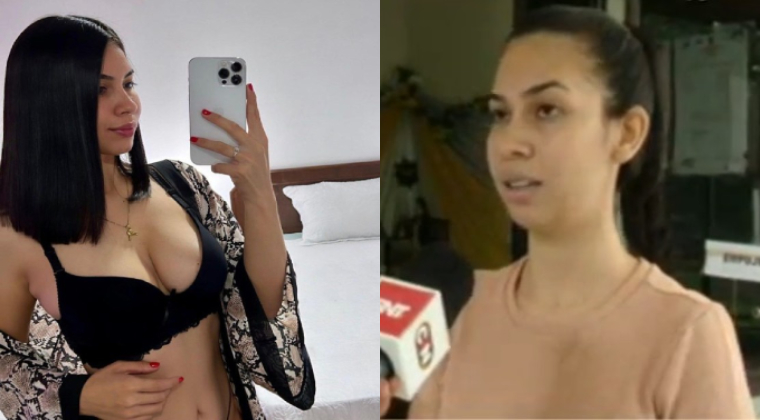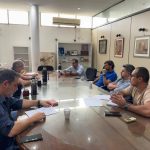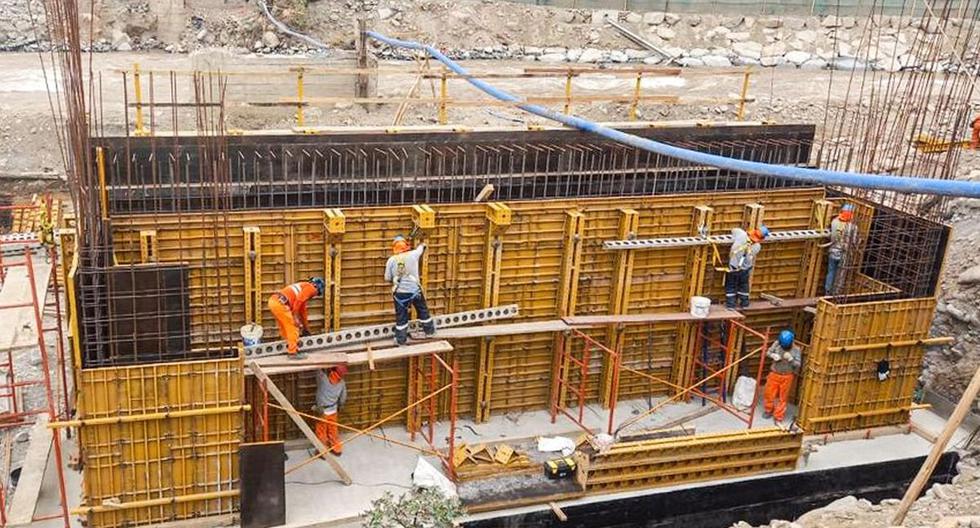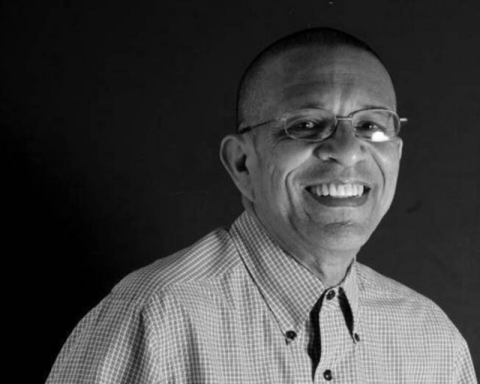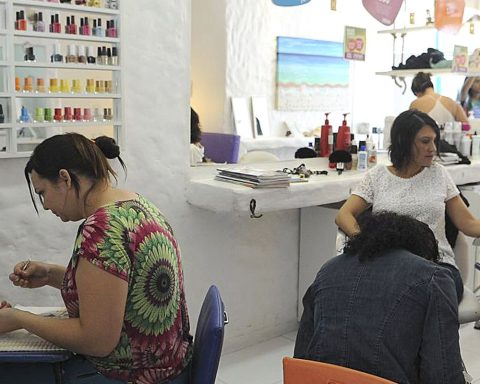In a reserved space, the president of the South American Football Confederation (Conmebol), Alejandro Dominguezexplained that the Zucolillo Group, seeking to divert attention from the verified shielding and laundering of the dirty money by Nicolás Leoz through the Atlas bank, from the The newspaper Abc Color followed him through the media for seven years.
Read more: President of Conmebol calls the newspaper Abc a “media thug”
A forensic audit carried out under his management showed that a significant part of Leoz’s trust in the bank was integrated with a debt that the Inmobiliaria del Este (Idesa, also from Zuccolillo) had with the former president of Conmebol, without there being any document that explains how Leoz had acquired the documents lotted and sold by Idesa. Said trust was established in February 2016, when an international arrest warrant weighed on Leoz.
The Atlas bank made ignore the warning signs about the sports leader, request for extradition and criminal proceedings opened against him, and authorized trusts for more than G. 40 billion. The facts, public and notorious, pointed to Leoz as part of a mafia organization dedicated to fraud and money laundering.
In this sense, in February 2021, Conmebol filed a complaint for money laundering with the Prosecutor’s Office, which in April of that year raided the Atlas headquarters. Likewise, in July of that same year, he raided the Superintendence of Banks of the BCP due to the refusal to provide information in this case. However, despite these important steps taken at the beginning, later Nothing was known about any progress in the investigation.
Related note: Leoz-Atlas case and embarrassment at BCP: Superintendent committed obstruction of the investigation
while the bank Atlas denies information to the justice about commercial operations with Leoz alleging “bank secrecy”, other important foreign financial entities chose to collaborate in the investigations within the framework of FIFA Gate. Such is the case of the Swiss bank Julius Baerwhich agreed to pay US$80 million in a settlement of corruption allegations, Televisa agreed to pay US$95 million to settle a bribery lawsuit against FIFA and the Israeli bank hapoalim agreed to pay US$30 million for its part in laundering money from FIFA.
The last mentioned agreement, to which the La Caja Negra team had access in its original language and translated into Spanish by a public translator registered by the Supreme Court of Justice, was signed in April 2020 between the United States Department of Justice, the Criminal Division, the Money Laundering and Asset Recovery Section, the Office of the United States Attorney for the Eastern District of New York and the Israeli bank.
There it is recorded and details are exposed that the participation of the multinational based in Tel Aviv and several branches around the world, in the FIFA bribery scheme.
Related note: Document reveals deception of Atlas bank to shield dirty money from Nicolás Leoz
According to the document, between 2010 and 2015, those in charge of the bank conspired with the Argentines. Hugo Jinkis and Mariano Jinkis, the Venezuelan Rafael Esquivel, the Colombian Luis Bedoya and others to launder funds through bank accounts in support of various FIFA-related bribery schemes. During this same time period, bank staff failed to adequately investigate and address indications of money laundering and red flags raised by certain bank employees regarding the various accounts held by the Full Play Company.
This firm operated mainly in Argentina, although with several subsidiaries and affiliates such as “Bayan Group SA” (with an account at the Hapoalim bank at its headquarters in Switzerland), “Cross Trading SA” (with two accounts at the same mentioned bank), and “Yorkfields SA” (with an account at Hapoalim bank in Miami).
As of 2007, Full Play bribed numerous soccer officials affiliated with the national soccer federations of Colombia, Venezuela, Ecuador, and Bolivia in exchange for the broadcasting rights of the respective national football teams of those federations.
Many of the bribe payments made into the Yorkfields account triggered the bank’s internal anti-money laundering alerts. These alerts typically required the Relationship Manager to provide an explanation to the bank’s compliance department for the payment in question, after which a bank’s compliance analyst would be required to review and approve the explanation and remove the alert before it could be issued. could make the payment. Despite the red flags and red flags raised, the bribe payments were eventually approved.
RISK PROFILE WARNING
According to the report, two Hapoalimm senior managers (one Uruguayan and one Swiss) deliberately promoted bribery schemes by allowing their clients to use accounts at the bank to pay bribes. In about 2010, the top conspirators understood that Hugo and Mariano Jinkis were paying bribes to FIFA officials.
Around August 30, 2011, a Bank Compliance Employee raised a number of concerns because the payments were not in accordance with the customer profile and it warned that the reputational risk with respect to this customer for the bank was substantial. Despite the employee’s concerns about Full Play payments to Luis Bedoya, the bank’s senior managers they continued to run payments to football officials.
AMERICA’S CUP AND CENTENARY CUP
The document also addresses the Copa América and Copa América Centenario bribery scheme. In this regard, it states that from approximately 1987 to 2011, Traffic Sports (“Traffic”), a Brazilian sports marketing company, had the commercial rights to the CONMEBOL Copa América soccer tournament. On several occasions during that period, Traffic agreed to pay bribes to various CONMEBOL officials in exchange for their support of Traffic’s position as the exclusive holder of those rights.
Around 2009, a group of six presidents of the CONMEBOL member associations formed a bloc to gain greater control over decisions related to the government and the sale of CONMEBOL’s commercial properties, decisions that had previously been dominated by representatives of soccer powerhouses Argentina and Brazil. As of 2009, members of the “Group of Six,” as the bloc’s members were known, demanded that they, too, receive annual bribes in exchange for their support for the award of transmission rights.
In 2010, CONMEBOL ended its longstanding relationship with Traffic and signed an agreement with Full Play, granting this company exclusive media and marketing rights for the 2015, 2019 and 2023 editions of the Copa América, among other tournaments. In order to win that contract, Full Play directors Hugo and Mariano Jinkis agreed to pay bribes to various CONMEBOL officials.
THE RECOGNITION OF THE BANK
In the report, the bank acknowledges, agrees and acknowledges that under the laws of the United States, it is responsible for the acts of its officers, directors, employees and agentssince from December 10, 2010 to February 20, 2015, some of its relationship managers conspired with sports marketing executives and soccer officials to execute at least $20,733,322 in bribe payments in support of a scheme in which sports marketing companies bribed soccer officials in exchange for broadcast rights to soccer matches.
By conspiring to execute those payments, the relationship managers intended to promote honest services wire fraud. These senior managers conspired to conceal and disguise the bribery proceeds. By executing payments and maintaining relationships, relationship managers also intended, at least in part, to benefit the Bank, which in fact made commissions and profits from the accounts in question. A bank compliance employee questioned and reported some of the payments, but the bank failed to take appropriate action.
It is because of that the bank committed to an anti-money laundering program and agreed to pay a fine of $9,329,995, and $20,733,322 forfeiture for funds involved in transactions or attempted transactions from your accounts to promote bribery.
